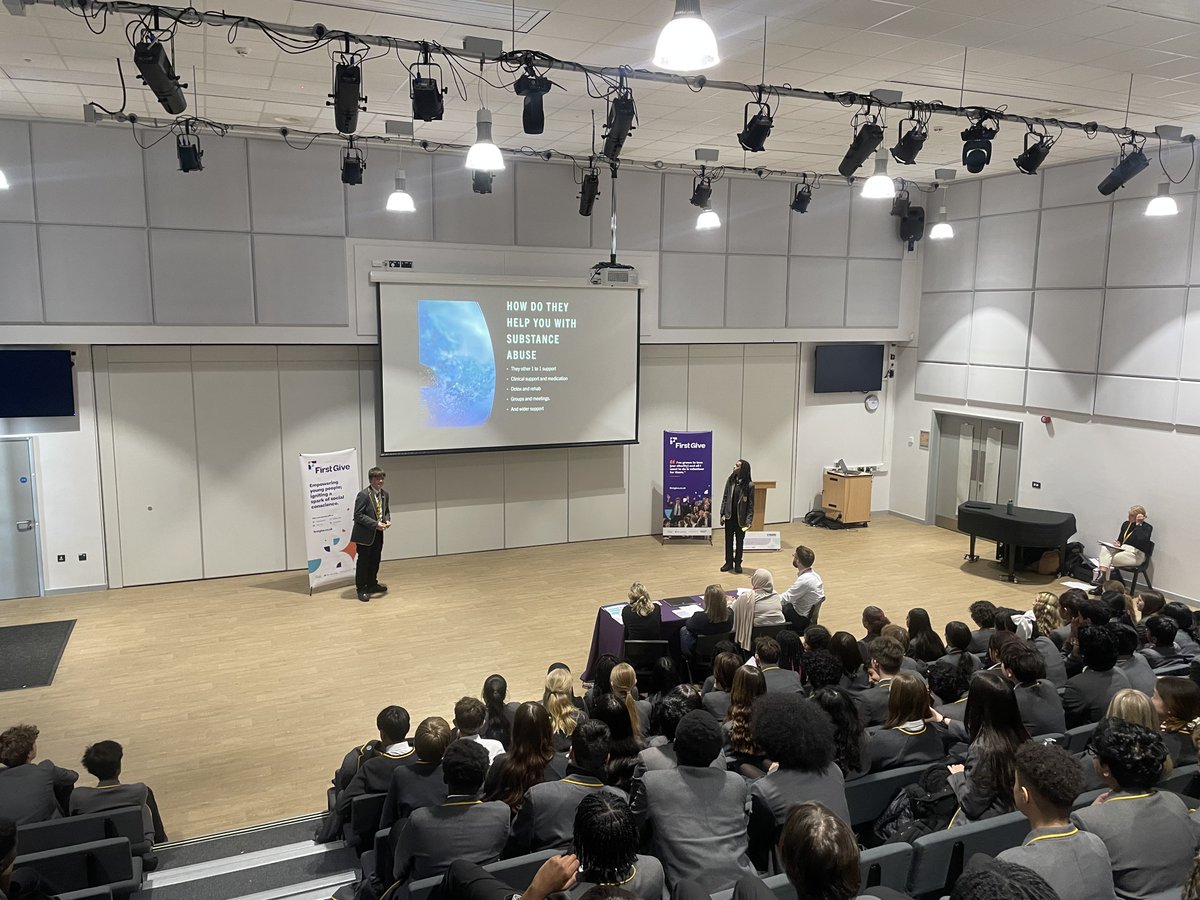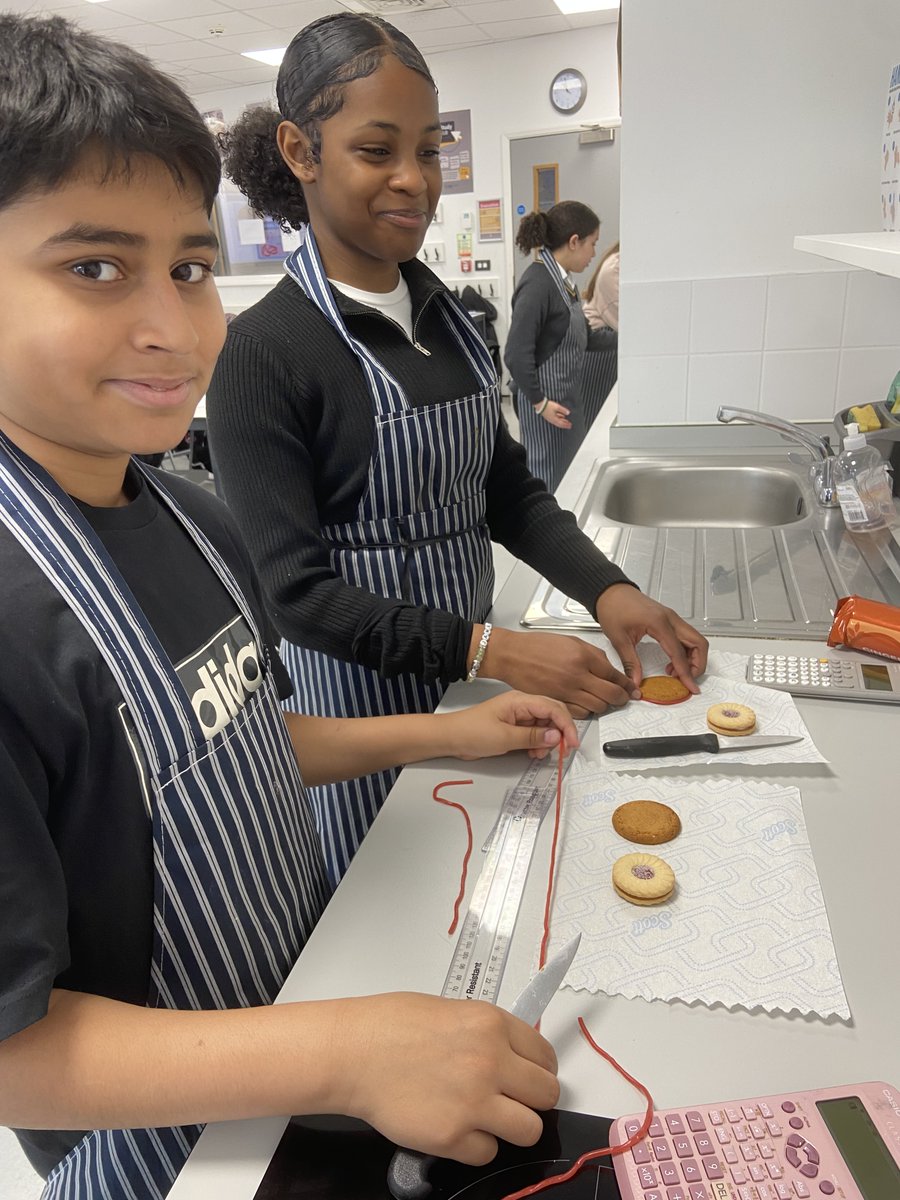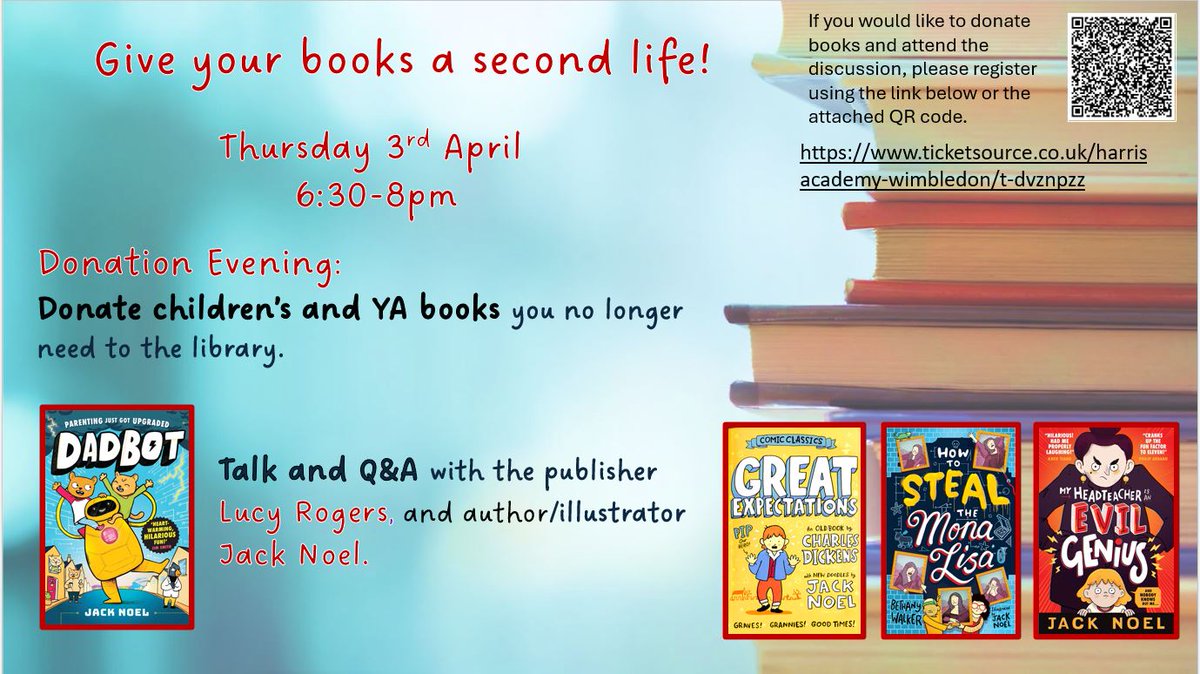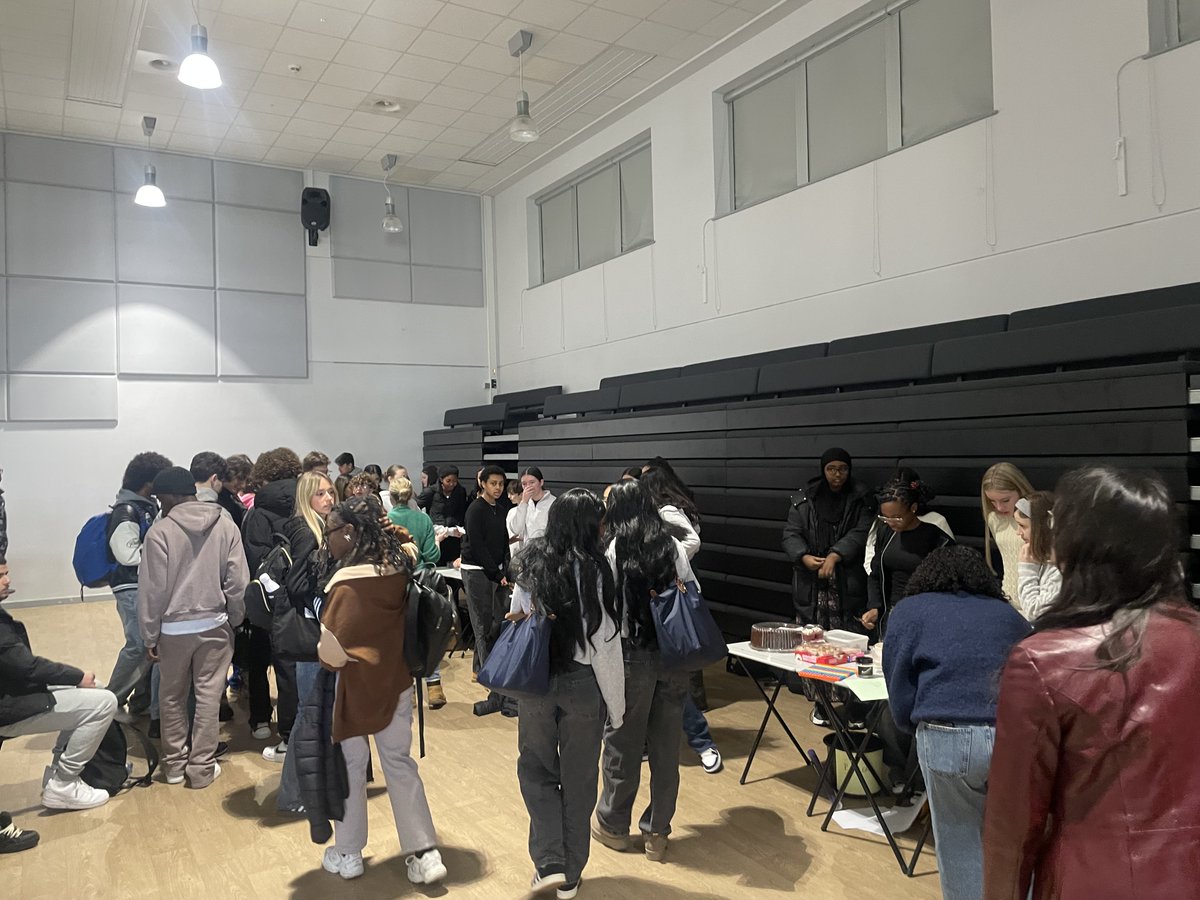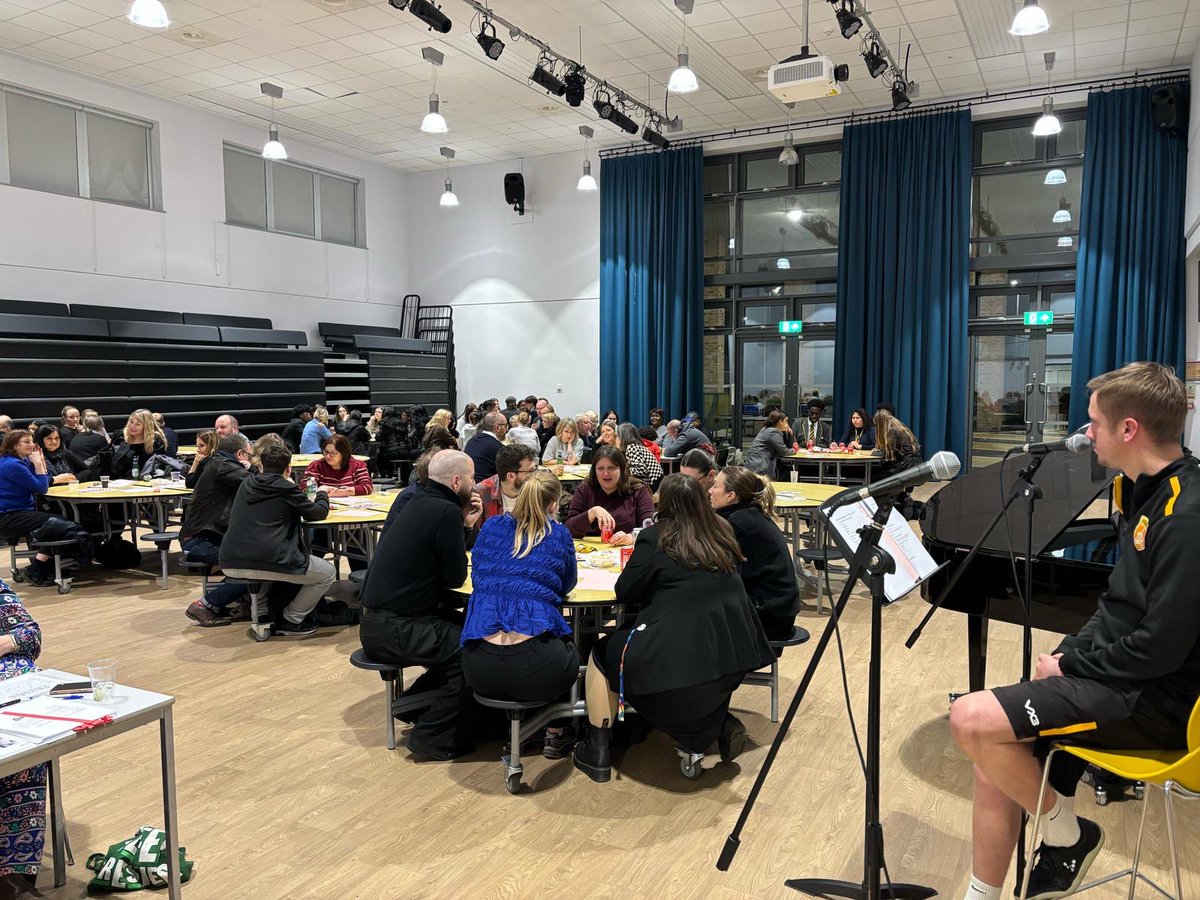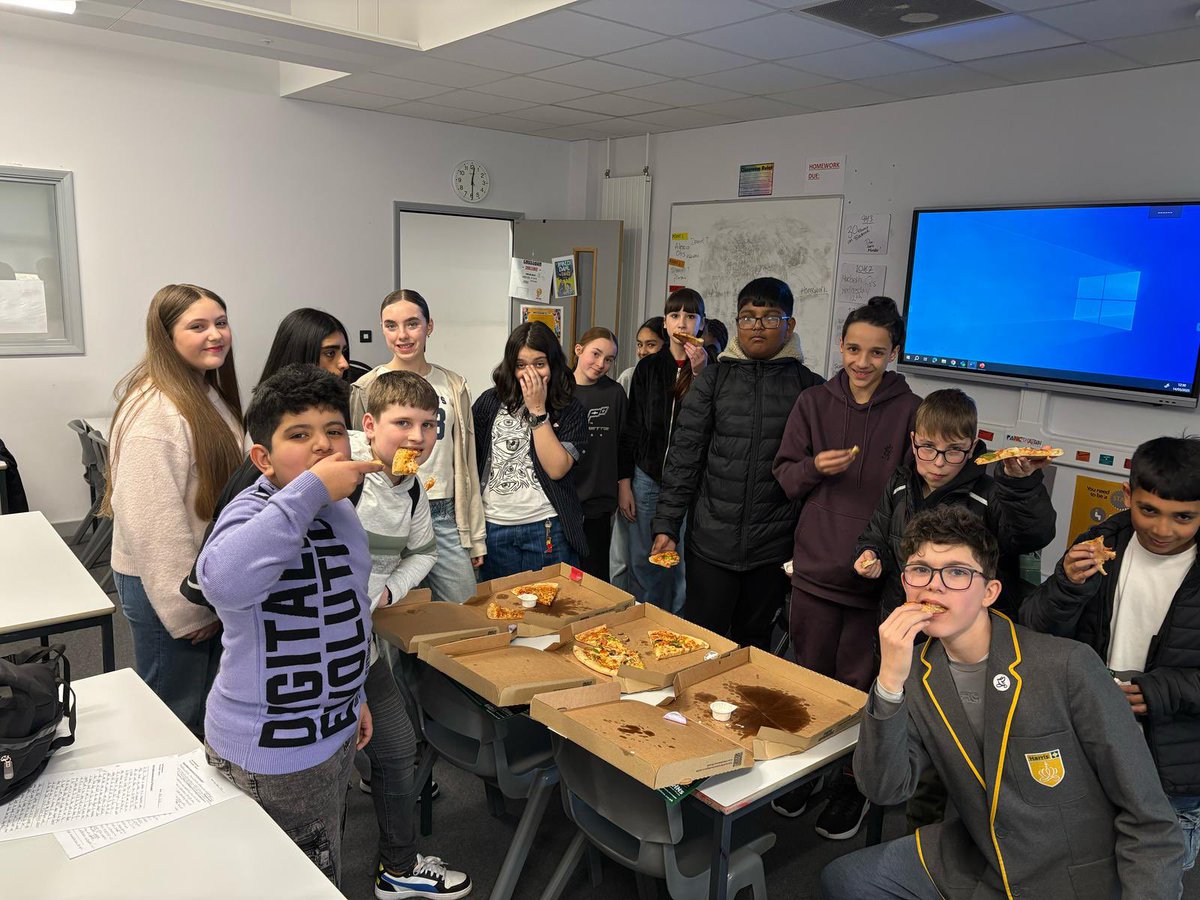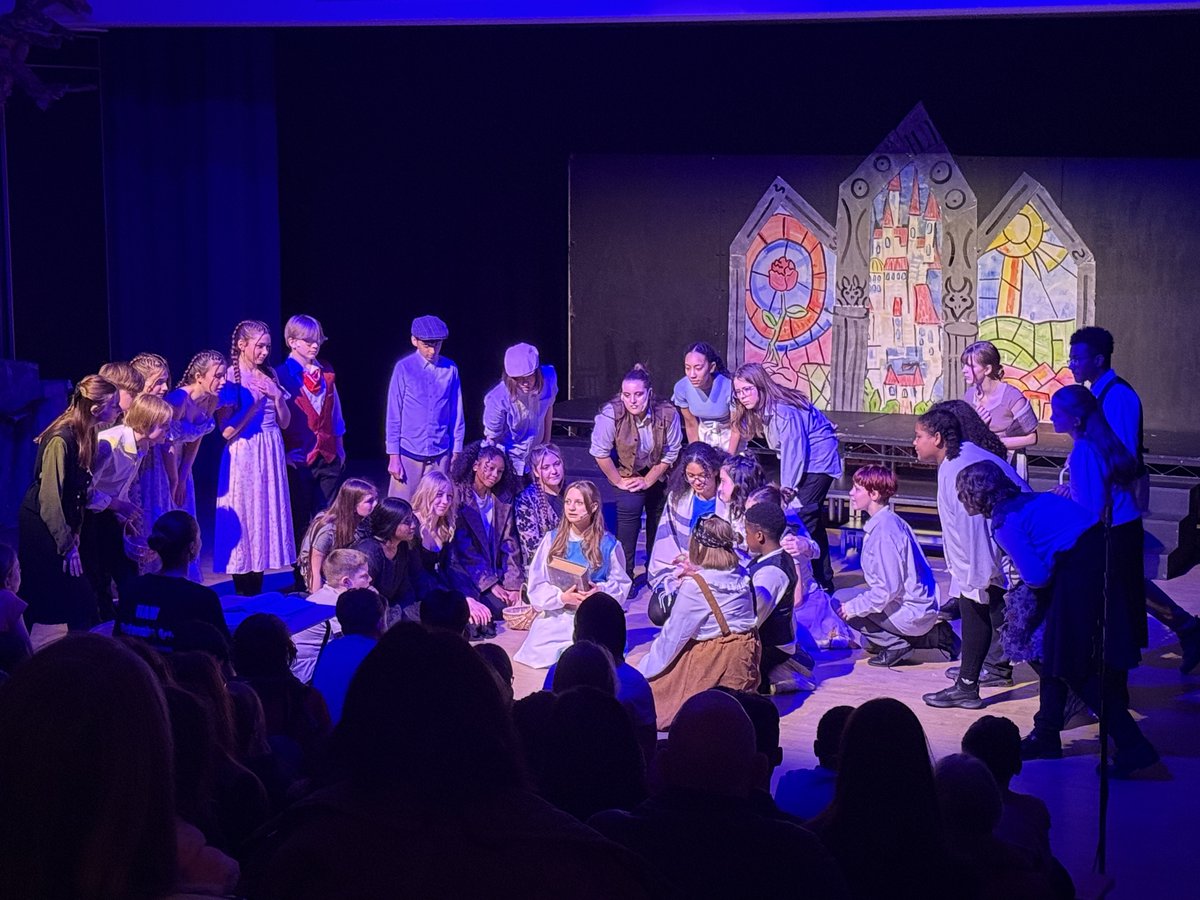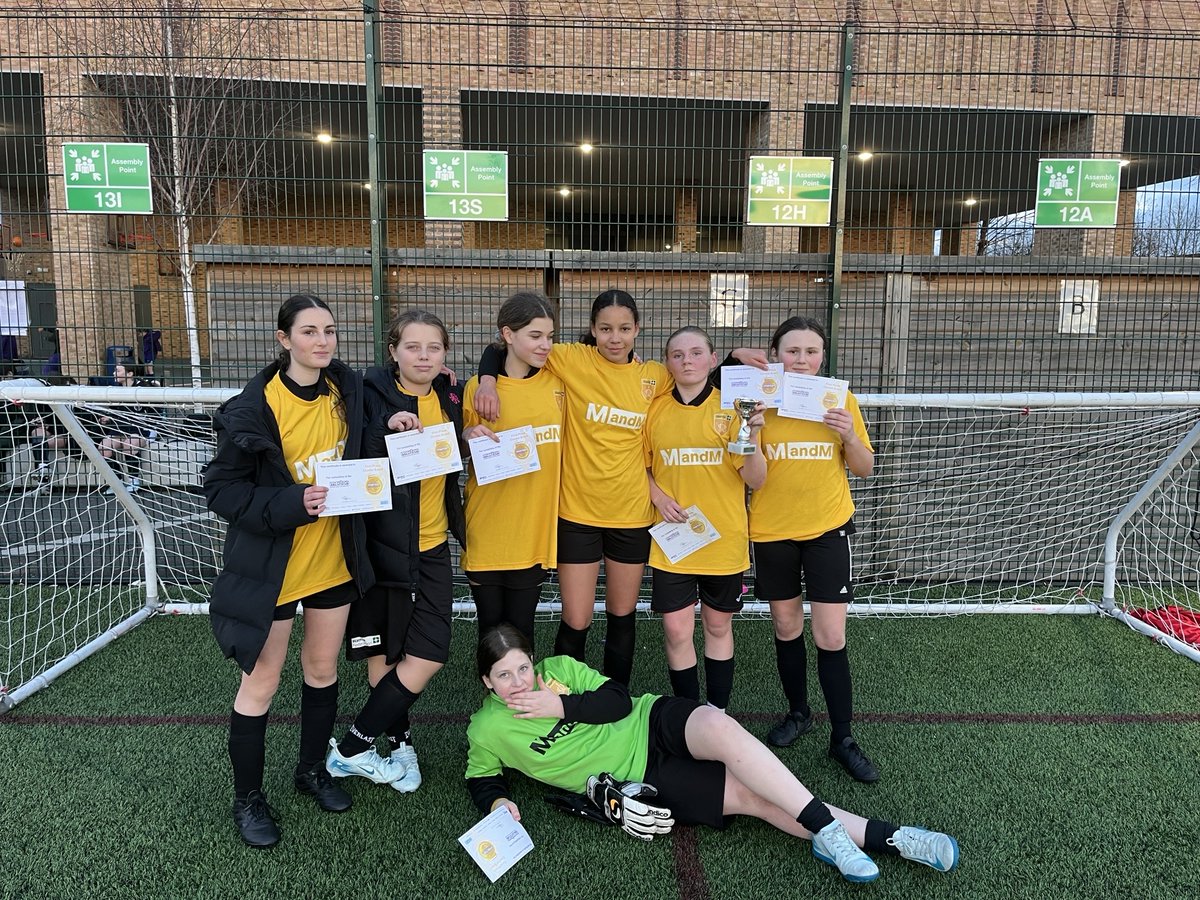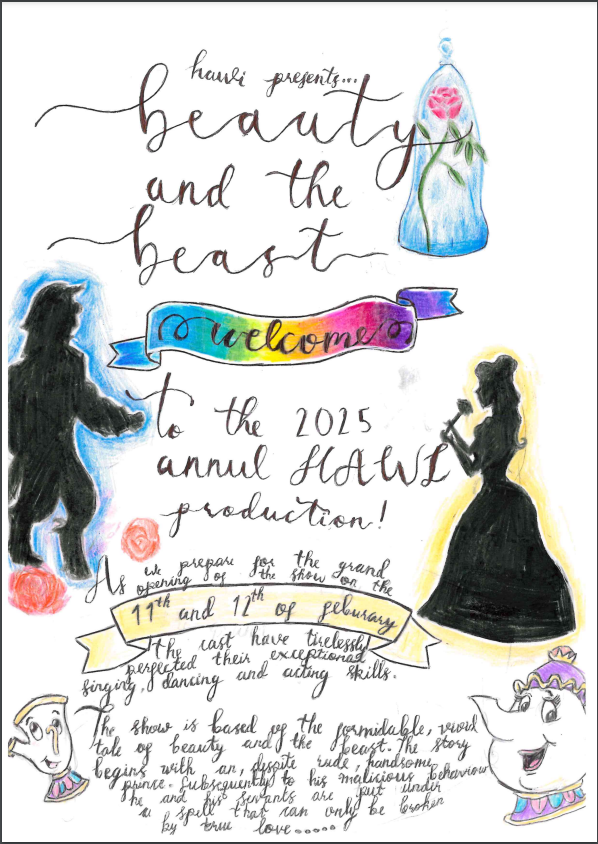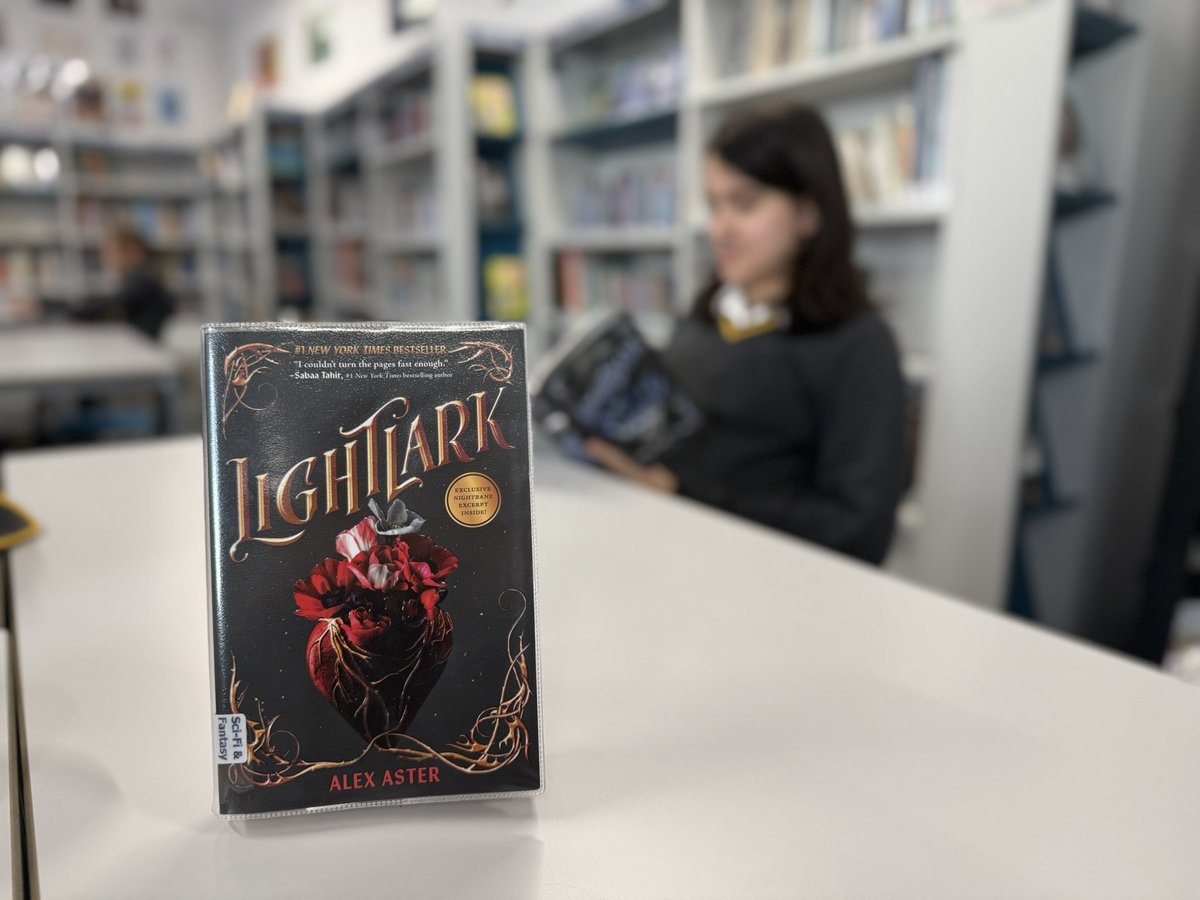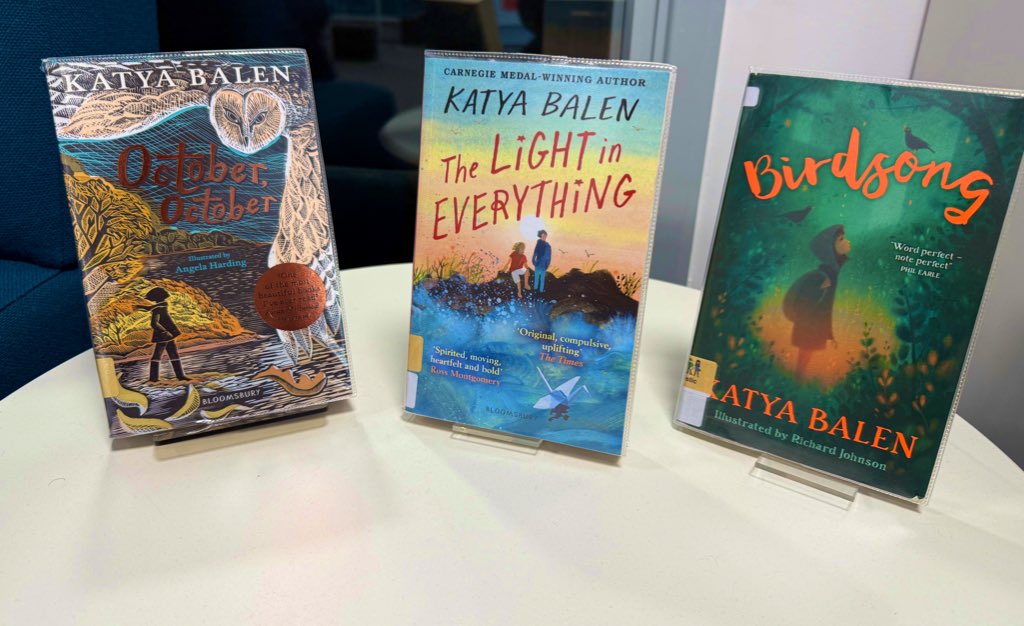Safeguarding
Our safeguarding statement of intent
Safeguarding covers the actions we take to protect the welfare of all our students and at Harris Academy Wimbledon, your child’s welfare and safety are our top priority. As part of our safeguarding responsibilities, we pride ourselves on providing a caring, safe, and stimulating environment which promotes the social, physical, and moral development of all students whilst fostering an atmosphere of trust, respect, and security.
Harris Academy Wimbledon has a strong commitment to ensuring the highest standards of safeguarding. Within the academy, there is a well-established culture of vigilance and listening to children to ensure that appropriate action is taken to fully support the child at all stages. We pride ourselves on our early help offer and look to take preventative action where appropriate to ensure concerns don’t escalate. When necessary, we will ensure that all child protection concerns, and referrals are handled sensitively, professionally, and without delay whilst supporting the needs of the individual child.
To access our Safeguarding Policy, please see here
To find out about our approach to e-safety, please see here
To find out about how we prevent bullying please click here
What should I do if I have a safeguarding concern?
If you have a safeguarding concern surrounding a student at Harris Academy Wimbledon, you can call or email to report it to a member of the Safeguarding Team.
Phone Number: 020 3962 4300
Email: y.nyatedzu@harriswimbledon.org.uk
For students
If you are in the academy
- Speak to your House tutor
- Speak to any member of staff - they do not need to be your tutor or one of your teachers
- Speak to someone on the safeguarding team
- Sometimes it can be difficult to approach an adult is something is bothering you. If it would help you, ask a friend to go with you.
If you are not in the academy:
- Speak to a family member
- Ask the family member to make contact with the academy
Access support via the internet
- This website has links to many different organisations who are there to help you: www.youthaccess.org.uk
- Kidscape particularly focuses on support with bullying concerns
- Talktofrank offers honest information about drugs
- Call Childline on 08001111
- Text P2B to 85258 to get free, confidential support in a crisis any time, day or night.
Remember: If your life, or someone else’s life, is in immediate danger, call 999.
Harris Academy Wimbledon Safeguarding Team:
|
|
|
|
|
|
Mr Chaloner |
Alternatively, you can also contact Children’s Services directly:
Merton: 020 8545 4226
Merton (out of hours): 020 8770 5000
Referral form: https://www.mertonscp.org.uk/documents/safeguarding-referral/
Other local Borough safeguarding hotlines:
Wandsworth: 020 8871 7899
Wandsworth (out of hours): 020 8871 6000
Referral form: https://www.wandsworth.gov.uk/health-and-social-care/children-and-families/make_a_referral_to_the_multi_agency_safeguarding_hub/
Sutton: 020 8770 6001
Sutton (out of hours): 020 8770 5000
Referral form: https://www.sutton.gov.uk/info/200235/safeguarding_children/473/what_to_do_if_you_are_worried_about_a_child/2
Croydon: 020 8230 4307
Croydon (out of hours): 020 8726 6400
Referral form: https://my.croydon.gov.uk/MashReferrals
PRSHE and mental health - early help
We are acutely aware of our need to support young people with their mental health and well-being in order that they are safeguarded. Our unique ‘Human and Life Skills’ relationship is designed to ensure that our students receive the appropriate provision to improve their knowledge and understanding of relationships, sex and relationships and healthy living. More information about our Human and Life skills curriculum can be found here.
What does early help look like at HAWI?
We aim to provide the highest quality of support for all students as soon as a problem emerges regardless of when this problem may arise in a student’s life. Early help can prevent further problems arising through personalised interventions. A summary of our early help offer can be viewed in the poster linked here.
Domestic Abuse
Domestic abuse is any incident of threatening behaviour, violence or abuse (which can take a number of different forms including psychological, physical, sexual, financial or emotional) between adult partners or family members, regardless of gender or sexuality. According to Women’s Aid, one in four women will experience domestic abuse during their lives and sadly, an average of 2 women per week die due to domestic violence.
All children can witness and be adversely affected by domestic abuse in the context of their home life where domestic abuse occurs between family members. Experiencing domestic abuse and/or violence can have a serious, long lasting emotional and psychological impact on children. In some cases, a child may blame themselves for the abuse or may have had to leave the family home as a result. 27 Young people can also experience domestic abuse within their own intimate relationships. This form of peer on peer abuse is sometimes referred to as ‘teenage relationship abuse’
If you have experienced sexual or domestic violence or abuse, the effects can be devastating and long-lasting. A traumatic event or exposure to long-term abuse can impact on your capability to lead a normal life - both emotionally and socially. You may be physically hurt, suffering emotional difficulties and feeling overwhelmed. You may not know who to turn to for support. You may want to report the crime against you but not know where to start. In these situations, it's important that you are able to reach out for help, to someone you can trust.
Furthermore, if we suspect any child is a victim of domestic abuse, we will refer to Children Social Services and in some cases, the police.
Below is a list of resources aimed at supporting families and individuals that may be suffering from domestic abuse. You can also contact the Safeguarding team if you need assistance.
- Contact the Freephone 24 hour National Domestic Violence Helpline run by Women’s Aid and Refuge 0808 2000 247
- Police, Call 999 if someone is in immediate danger. Call 101 at all other times. Report online at www.met.police.uk/ro/report/ocr/how-to-report-a-crime/. How do you call the police on 999 when you can't speak? When you phone 999, an operator will ask what emergency service you need. If there is no answer, the operator will then ask you to cough, or make another audible sign that you're in need of police assistance. If you're in too much danger to make any sound at all, the call will be put through to an automated system which asks the caller to press 55 if they're in danger. If 55 isn't dialled, the police will not be dispatched.
- National Helplines, National Domestic Abuse Helpline, Phone 0808 200 0247 , If you are not able to speak, you can reach the helpline online at www.nationaldahelpline.org.uk/Contact-us. A national service for women experiencing domestic abuse, their family, friends, colleagues and others calling on their behalf. As well as advice it can offer access to emergency refuge accommodation. If you are worried about someone experiencing domestic abuse you can find tips and support at https//www.nationaldahelpline.org.uk/Supporting-a-survivor
- Bright Sky App, Bright Sky is a free to download mobile app providing support and information to anyone who may be in an abusive relationship or those concerned about someone they know. It is disguised as a weather app. Apple download apps.apple.com/gb/app/bright-sky/id1105880511 Google Play download play.google.com/store/apps/details?id=com.newtonmobile.hestia&hl=en_GB
- Victim Support Phone 0808 168 9291 Free advice and support, Mon - Fri 8am–8pm, Sat 9am–5pm
- National Stalking Helpline Phone 0808 802 0300, Provides guidance and information to anybody who is currently or has previously been affected by harassment or stalking.
- Men’s Advice Line Phone 0808 801 0327 Advice and support for men in abusive situations.
- Galop, Phone 0300 999 5428, Email help@galop.org.uk, Helpline for lesbian, gay, bisexual & transgender people experiencing domestic abuse or hate crime.
- Respect, Phone 0808 802 4040 , Free helpline for anyone concerned about their own behaviour. Respect offers support services for perpetrators of domestic abuse, young people who use violence and abuse at home and in relationships, and men who are victims of domestic violence.
- Childline, Phone 0800 1111, A private and confidential service for children and young people up to the age of nineteen.
- The Hideout An online space to help children and young people to understand domestic abuse, and how to take positive action if it's happening to you. Love Don't Feel Bad for 16-25 year olds, exploring healthy relationships, how to get help and the law.
Self-Harm
Self-harm is defined as: ‘The act of deliberately causing harm to oneself either by causing a physical injury, by putting oneself in dangerous situations and/or self-neglect’.
Why do people self-harm?
Self-harm can take a number of forms. Self-harm is a way of coping and obtaining relief from a difficult and otherwise overwhelming situation or emotional state. Someone who self-harms is usually in a state of high emotion, distress and inner-turmoil. A person will often struggle with difficulties for some time before they self-harm.
Situations that can trigger self-harm:
- Relationship problems with partners, friends or family
- Pressures e.g. school work and exams, sporting performance, family issues
- Bullying
- Trying to fit in (some social groups are more accepting of self-harming behaviours)
- Feeling bad about one’s self (guilt, shame, worthlessness)
- Physical, emotional or sexual abuse
- Feeling depressed
Self-harm and Suicide
Whilst self-injury and suicide are separate, those who self-injure are in emotional distress and those who end their lives are also in emotional distress. In addition, there is always the danger that self-harm could go wrong and cause death, although this may not have been the intention. It is vital that all emotional distress is taken seriously to minimise the chances of self-injury, and suicide. Any warning sign or talk of suicide must be taken seriously.
What to do if a young person discloses that they are self-harming:
- Listen to the young person in emotional distress calmly and explain that you are not judging them or their behaviour.
- Do not assuring confidentiality.
- Try to remain calm. Young people who self-harm can find it very hard to talk about what has happened and are often afraid of how people will react. The reaction a young person receives when they disclose their self-harm can have a critical influence on whether they go on to access supportive services. Any indication of a negative emotion or being judgmental is likely to aggravate the situation.
- If the wounds are fresh, seek first aid treatment and assessment.
- Members of staff should report incidents of self-harm in the same way as other safeguarding issues
- Where parents/carers are aware of such instances, we would strongly recommend that school is informed.
If it is disclosed to the school that a student is self-harming
- The student will be seen by one of the designated safeguarding leads in the school together except where parents/carers have informed the school and provided information.
- If the student is expressing suicidal thoughts or is in imminent danger of causing themselves significant harm, parents/carers will be called and advised to take the child to A & E. In extreme cases an ambulance will be called. In these cases, the school is required to make a referral to Children’s Services.
- Where the self-harm does not cause concern for the students immediate welfare, the Designated Safeguard Lead or Deputy Safeguard Lead will contact parents/carers and advise that a GP appointment is made. Further support such as a meeting with the School Counsellor or a referral to CAHMS will be discussed with the parents/carers.
Students will be advised:
- Not to display open wounds/injuries. These should be dressed appropriately.
- To talk to the appropriate member of staff if they are in emotional distress
- To alert a teacher if they suspect another student is self-harming or at serious risk of harm to themselves and know when confidentiality must be broken.
Further information:
For further information on self-harm visit:-
Child Sexual Exploitation (CSE)
Child sexual exploitation (CSE) is a type of sexual abuse. Children in exploitative situations and relationships receive something such as gifts, money or affection as a result of performing sexual activities or others performing sexual activities on them.
Children or young people may be tricked into believing they're in a loving, consensual relationship. They might be invited to parties and given drugs and alcohol. They may also be groomed and exploited online.
Some children and young people are trafficked into or within the UK for the purpose of sexual exploitation. Sexual exploitation can also happen to young people in gangs
Child sexual exploitation is a hidden crime. Young people often trust their abuser and don't understand that they're being abused. They may depend on their abuser or be too scared to tell anyone what's happening. It is also paramount to acknowledge that children can abuse other children.
It can involve violent, humiliating and degrading sexual assaults, including oral and anal rape. Child sexual exploitation doesn't always involve physical contact and can happen online.
When sexual exploitation happens online, young people may be persuaded, or forced, to:
- send or post sexually explicit images of themselves
- take part in sexual activities via a webcam or smartphone
- have sexual conversations by text or online.
- Abusers may threaten to send images, video or copies of conversations to the young person's friends and family unless they take part in other sexual activity.
- Images or videos may continue to be shared long after the sexual abuse has stopped
What are the signs of CSE?
Sexual exploitation can be difficult to identify as signs can be mistaken for “normal teenage behaviour”. Those involved in CSE may:-
- be involved in abusive relationships, intimidated and fearful of certain people or situations
- associate with groups of older people, or antisocial groups, or with other vulnerable peers
- associate with other young people involved in sexual exploitation
- be involved in gangs, gang fights, gang membership
- have older boyfriends or girlfriends
- spend time at places of concern, such as hotels or known brothels
- not know where they are, because they have been moved around the country
- go missing from home, care or education.
Other indicators include:
- being withdrawn
- suddenly behaving differently
- anxiety
- being clingy
- being depressed
- aggression
- problems sleeping or nightmares
- eating disorders or changes in eating habits
- wetting the bed or soiling clothes
- taking risks
- frequent absence from school
- obsessive behaviour
- misuse of drugs or alcohol
- self-harm or thoughts about suicide
- sexually activity at a young age, promiscuity or use of sexual language or knowledge inconsistent with age
- have physical symptoms e.g. anal or vaginal soreness, an unusual discharge, have a sexually transmitted infection (STI), become pregnant
What should you do if you suspect a child is the victim of CSE?
Members of staff who think a student is the victim of or is at risk of CSE should report this as a child protection issue to the Safeguarding Lead.
Members of the public should report this to the police and to Children’s Services.
Sexual Violence and Harassment
Sexual violence and sexual harassment can occur between two children of any age and sex from primary through to secondary stage and into colleges. It can occur through a group of children sexually assaulting or sexually harassing a single child or group of children. Sexual violence and sexual harassment exist on a continuum and may overlap; they can occur online and face to face (both physically and verbally) and are never acceptable. As set out in Part one of Keeping children safe in education (KCSIE), all staff working with children maintain an attitude of ‘it could happen here’.
For the purpose of this advice, when referring to sexual violence we are referring to sexual offences under the Sexual Offences Act 2003 as described below:
- rape
- assault by penetration
- sexual assault
- causing someone to engage in sexual activity without consent
For the purpose of this advice, when referring to sexual harassment we mean ‘unwanted conduct of a sexual nature’ that can occur online and offline and both inside and outside of school/college. When we reference sexual harassment, we do so in the context of child on child sexual harassment. Sexual harassment is likely to: violate a child’s dignity, and/or make them feel intimidated, degraded or humiliated and/or create a hostile, offensive or sexualised environment. Sexual harassment can include:
- sexual comments
- sexual jokes
- physical behaviours
- online sexual harassment
- sharing of nudes (consensual and non-consensual)
- sharing of unwanted explicit content
- upskirting
- sexualised online bullying
- unwanted sexual comments
- sexual exploitation, coercion and threats.
Sexting
There is no single definition of ‘sexting’. Many professionals consider sexting to be ‘sending or posting sexually suggestive images, including nude or semi-nude photographs, via mobiles or over the Internet.’
It is an offence to possess, distribute, show and make indecent images of someone under 18. Indecency is not defined but for most purposes, if imagery contains a naked young person, a topless girl, and/or displays genitals or sex acts, including masturbation, then it will be considered indecent. Indecent images may also include overtly sexual images of young people in their underwear.
The law was devised to protect children from adults and not to criminalise children. However, children who take or share sexual images of themselves or others are breaking the law. Creating and sharing imagery can be very risky but can be the result of natural curiosity and exploration. Young people often need educating, support and safeguarding rather than criminalisation.
Schools may respond to incidents without referring to the police. If the police are involved, they can record the outcome of the investigation as “Outcome 21”. This means that even though a young person has broken the law and the police could provide evidence that they have done so, the police can record that they chose not to take further action as it was not in the public interest.
Dealing with incidents
The image must not be copied or stored on another device; it should not be viewed without good reason
The incident should be referred to the Designated Safeguarding Lead as soon as possible to decide:
- Whether there is an immediate risk to a young person or young people.
- If a referral should be made to the police and/or children’s social care.
An immediate referral to police and/or children’s social care should be made if at this initial stage:
- The incident involves an adult or there is a significant age difference
- The imagery involves sexual acts and any pupil in the imagery is under 13
- There is reason to believe that a young person has been coerced, blackmailed or groomed, or if there are concerns about their capacity to consent
- What you know about the imagery suggests the content depicts sexual acts which are unusual for the young person’s developmental stage, or are violent
- There is reason to believe a young person is at immediate risk of harm owing to the sharing of the imagery, for example, the young person is presenting as suicidal or self-harming
- Any incidents with aggravating factors, for example, a young person sharing someone else’s imagery without consent and with malicious intent, should generally be referred to police and/or children’s social care. The school will also take into account whether the child has been involved previously in any such incident.
Deletion of imagery
Students will be informed that possession of youth produced sexual imagery is illegal and that they must delete images. They will be informed that if they refuse or it is later discovered they did not delete the images they are committing a criminal offence and the police may become involved.
Informing Parents/Carers
Parents/carers will be informed at an early stage unless informing them will put the student at risk. A decision not to inform parents will usually be taken with social care and or the police. Parents/carers will be offered advice, although this advice will vary according to the way in which their child has been involved.
All parents or carers whose child has been involved in any incidents will be:
- Kept updated about any actions that have been taken or any support that their child is accessing.
- Advised on the law around youth produced sexual imagery with regard to saving, sharing, or looking at naked or sexual images of children.
- Informed about sources of support for their child, in case they are feeling anxious or depressed about what has happened. This could include speaking to a ChildLine counsellor or a GP.
- Provided with information on where they are able to access support themselves if they are concerned or distressed.
- Directed to NCA-CEOP if they are concerned about child sexual exploitation or grooming.
Parents or carers whose child has lost control of a sexual image will be:
- Directed to encourage the young person to delete images from social media accounts, if they have uploaded them themselves.
- Directed to ChildLine’s partnership with the Internet Watch Foundation to see if it is possible to get the image removed if it has been shared more widely. This must be done as soon as possible in order to minimise the number of people that have seen the picture.
- Parents/carers will also be informed about how to report sexual images on individual sites to get them taken down. If the image has been shared via a mobile, they will be informed that they can contact the mobile phone operator in order to get their child’s mobile number changed.
- Directed to services for Harmful Sexual Behaviour, such as the National Clinical Assessment and Treatment Service24 (020 7428 1500 or NCATS@nspcc.org.uk, an NSPCC service), if appropriate, or if similar incidents have previously occurred.
Parents or carers whose child has been sent a sexual image will be:
- Provided with suggested ways that their child could speak to the sender in order to stop future correspondences. Alternatively, if the young person prefers, informed about how to block the sender.
- Directed to NCA-CEOP if the images were shared by an adult, if their child is being contacted by adults and they are concerned about sexual exploitation or grooming
Reporting to the police
When it is considered that the police need to be involved, issues will be referred to the School’s Police. The School notes that when a report is made to the police they are not able to offer general advice on incidents. If the children involved are named or specifics are provided they are duty-bound to record and investigate all criminal activity reported.
Further information:
Child Criminal Exploitation (CCE)
We know that different forms of harm often overlap, and that perpetrators may subject children and young people to multiple forms of abuse, such as criminal exploitation (including county lines) and sexual exploitation.
In some cases the exploitation or abuse will be in exchange for something the victim needs or wants (for example, money, gifts or affection), and/or will be to the financial benefit or other advantage, such as increased status, of the perpetrator or facilitator.
Children can be exploited by adult males or females, as individuals or in groups. They may also be exploited by other children, who themselves may be experiencing exploitation – where this is the case, it is important that the child perpetrator is also recognised as a victim. Whilst the age of the child may be a contributing factor for an imbalance of power, there are a range of other factors that could make a child more vulnerable to exploitation, including, sexual identity, cognitive ability, learning difficulties, communication ability, physical strength, status, and access to economic or other resources.
Indicators of both child criminal and sexual exploitation where children:
- appear with unexplained gifts, money or new possessions;
- associate with other children involved in exploitation;
- suffer from changes in emotional well-being;
- misuse drugs and alcohol;
- go missing for periods of time or regularly come home late; and
- regularly miss school or education or do not take part in education.
Children who have been exploited will need additional support to help maintain them in education
Support
We have numerous forms of support within the Academy. Please refer to our Early Help support sheet. Where needed, we will also refer to Children’s Social Services and/or the Police for external support such as Crime Stoppers and support from the Contextual Harm team.
County Lines
County Lines is where illegal drugs are transported from one area to another, often across police and local authority boundaries (although not exclusively), usually by children or vulnerable people who are coerced into it by gangs. The ‘County Line’ is the mobile phone line used to take the orders of drugs. Importing areas (areas where the drugs are taken to) are reporting increased levels of violence and weapons-related crimes as a result of this trend.
Exploitation of young and vulnerable people
A common feature in county lines drug supply is the exploitation of young and vulnerable people. The dealers will frequently target children and adults - often with mental health or addiction problems - to act as drug runners or move cash so they can stay under the radar of law enforcement.
In some cases the dealers will take over a local property, normally belonging to a vulnerable person, and use it to operate their criminal activity from. This is known as cuckooing.
People exploited in this way will quite often be exposed to physical, mental and sexual abuse, and in some instances will be trafficked to areas a long way from home as part of the network's drug dealing business.
As we have seen in child sexual exploitation, children often don't see themselves as victims or realise they have been groomed to get involved in criminality. So it's important that we all play our part to understand county lines and speak out if we have concerns.
How do you know if County Lines drug dealing is happening in your area?
- Some signs to look out for include:
- An increase in visitors and cars to a house or flat
- New faces appearing at the house or flat
- New and regularly changing residents (e.g different accents compared to local accent
- Change in resident's mood and/or demeanour (e.g. secretive/ withdrawn/ aggressive/ emotional)
- Substance misuse and/or drug paraphernalia
- Changes in the way young people you might know dress
- Unexplained, sometimes unaffordable new things (e.g clothes, jewellery, cars etc)
- Residents or young people you know going missing, maybe for long periods of time
- Young people seen in different cars/taxis driven by unknown adults
- Young people seeming unfamiliar with your community or where they are
- Truancy, exclusion, disengagement from school
- An increase in anti-social behaviour in the community
- Unexplained injuries
What to do if you have concerns
- When it is considered that the police need to be involved, issues will be referred to the School’s Police.
- The School notes that when a report is made to the police they are not able to offer general advice on incidents. If the children involved are named or specifics are provided they are duty-bound to record and investigate all criminal activity reported.
- Members of staff should report this as a child protection issue to the Designated Safeguarding Leads. Parents/carers should raise concerns with the relevant year team/s who can take advice on what next steps to take. Alternatively, parents/carers can report concerns directly to the police or to Children’s Services
- The best advice is to trust your instincts. Even if someone isn't involved in county lines drug dealing, they may be being exploited in some other way, so it's always worth speaking out.
- You can speak to your local police by dialling 101, or in an emergency 999.
- If you would rather remain anonymous, you can contact the independent charity Crimestoppers on 0800 555 111.
- If you notice something linked to the railways, you can report concerns to the British Transport Police by texting 61016 from your mobile. In an emergency dial 999.
- If you are a young person who is worried about your involvement, or a friend's involvement in county lines tell the safeguarding team at the school
- A good option is to speak to an adult you trust and talk to them about your concerns.
- You can also call Childline on 0800 1111. Childline is private and confidential service where you can talk to specially trained counsellors about anything that is worrying you.
- Alternatively, speak to a children and young people's service like Catch 22. They work with children and young people of any age to help get them out of situations they're worried about, and have helped lots of children and young people involved in County Lines.
Peer on Peer Abuse
Children can abuse other children (often referred to as peer on peer abuse) and it can take many forms. It can happen both inside and outside of school/college and online. This can include (but is not limited to):
- bullying (including cyberbullying, prejudice-based and discriminatory bullying);
- abuse within intimate partner relationships;
- physical abuse such as hitting, kicking, shaking, biting, hair pulling, or otherwise causing physical harm;
- sexual violence and sexual harassment;
- consensual and non-consensual sharing of nude and semi-nude images and/or videos;
- causing someone to engage in sexual activity without consent, such as forcing someone to strip, touch themselves sexually, or to engage in sexual activity with a third party;
- upskirting and initiation/hazing type violence and rituals
Peer on peer abuse involves someone who abuses a ‘vulnerability’ or power imbalance to harm another, and have the opportunity or be in an environment where this is possible. While perpetrators of peer on peer abuse pose a risk to others they are often victims of abuse themselves. It is influenced by the nature of the environments in which children/young people spend their time - home, school, peer group and community - and is built upon notions of power and consent. Power imbalances related to gender, social status within a group, intellectual ability, economic wealth, social marginalisation etc, can all be used to exert power over a peer.
It can affect any child/young person, sometimes vulnerable children are targeted. For example:
- Those living with domestic abuse or intra-familial abuse in their histories
- Young people in care
- Those who have experienced bereavement through the loss of a parent, sibling or friend
- Black and minority ethnic children are under identified as victims but are over identified as perpetrators
- Both girls and boys experience peer on peer abuse however they are likely to experience it differently i.e. girls being sexually touched/assaulted or boys being subject to homophobic taunts/initiation/hazing type (rituals and other activities involving harassment, abuse or humiliation used as a way of initiating a person into a group) violence.
Actions the school will take
The school deals with a wide continuum of children’s behaviour on a day to day basis and most cases will be dealt with via school based processes. These are outlined in the following policies:
- Behaviour & Anti-Bullying Policy
- E-Safety Policy
- Attendance & Punctuality Policy
- Sex and Relationship Education Policy
The school will also act to minimise the risk of peer on peer abuse by ensuring the establishment provides a safe environment, promotes positive standards of behaviour, has effective systems in place where children can raise concerns and provides safeguarding through the curriculum via PSHE and other curriculum opportunities. This may include targeted work with children identified as vulnerable or being at risk and developing risk assessment and targeted work with those identified as being a potential risk to others.
Action on serious concerns
The school recognises that children may abuse their peers physically, sexually and emotionally; this will not be tolerated or passed off as ‘banter’ or ‘part of growing up’. The school will take this as seriously as abuse perpetrated by an adult, and address it through the same processes as any safeguarding issue. We also recognise that children who abuse others are also likely to have considerable welfare and safeguarding issues themselves.
Peer to peer abuse may be a one off serious incident or an accumulation of incidents. Staff may be able to easily identify some behaviour/s as abusive however in some circumstances it may be less clear. In all cases the member of staff should discuss the concerns and seek advice from the Designated Safeguarding Lead (DSL).
Any suspicion or allegations that a child has been sexually abused or is likely to sexually abuse another child (or adult) should be referred immediately to Children’s Social Care and the Police.
Online Safety
The use of technology has become significant not only in our children’s lives, but it has unfortunately become a platform that facilitates harm and therefore is an underlying component of many safeguarding issues. As children mature, they become curious of the Internet and some take risks. It is therefore important that we educate our children on the danger of the Internet and what to do if things go wrong. Therefore, Harris Academy Sutton takes an effective approach to online safety to protect and educate the whole school.
The Risks:
The breadth of issues classified within online safety is considerable, but can be categorised into three areas of risk:
CONTENT: being exposed to illegal, inappropriate or harmful material;
CONTACT: being subjected to harmful online interaction with other users;
and
CONDUCT: personal online behaviour that increases the likelihood of, or causes, harm which falls under the following risks:
- Child sexual exploitations
- Radicalisation
- Sexual predation
- Cyber-Bullying
- Plagiarism
- Illegal downloading
- Over-sending whilst gaming
- Insecure privacy settings
- Sharing inappropriate images
Prevention:
In order to minimise the risk of online safety, Harris Academy Sutton has appropriate filters and monitoring systems in place on our electronic devices. In addition to this, staff undergo regular safeguard training to ensure children are taught about online safety in PSHCE.
Whilst we will continue to safeguard your children in school, there are also a number of ways that you - as parents - can support the safeguarding of our students:
- Talk about possible concerns and provide your child with safety tips for minimising risk online.
- Ensure that your child fully understands the dangers of talking to strangers online and the reasons why they should not
- Reinforce with your child that once information, messages or pictures are posted online, they lose all control of their use or further circulation
- Make sure your child understands that some activities carried out online are illegal
E-Safety Top Tips:
- Don't give out personal information such as your address or phone number
- Don’t send pictures of yourself to anyone, especially indecent pictures
- Don't open emails or attachments from people you don't know
- Don't become online ‘friends’ with people you don't know.
- Never arrange to meet someone in person who you've met online
- If anything you see or read online worries you, tell someone about it.
Information and Support:
There is a wealth of information available to support schools and colleges to keep children safe online. The following is not exhaustive but should provide a useful starting point:
Female Genital Mutilation (FGM)
Female genital mutilation (FGM) is the partial or total removal of external female genitalia for non-medical reasons. It's also known as female circumcision or cutting.
Religious, social or cultural reasons are sometimes given for FGM. However, FGM is child abuse. It's dangerous and a criminal offence.
There are no medical reasons to carry out FGM. It doesn't enhance fertility and it doesn't make childbirth safer. It is used to control female sexuality and can cause severe and long-lasting damage to physical and emotional health.
FGM has been a criminal offence in the UK since 1985. In 2003 it also became a criminal offence for UK nationals or permanent UK residents to take their child abroad to have female genital mutilation.
Anyone found guilty of the offence faces a maximum penalty of 14 years in prison.
Reporting requirements - Regulated health and social care professionals and teachers in England and Wales must report ‘known’ cases of FGM in under 18s to the police (Home Office, 2016).
Who is at risk from FGM?
FGM is typically inflicted on girls between 4 and 15 years of age. The majority of known cases are in 28 African countries including Somalia, Sudan, as well as others in the Middle East and Asia.
Long term consequences can include recurrent bladder and urinary tract infections, cysts, infertility, an increased risk of complications in child birth and a need for further surgery.
Many victims also suffer severe psychological trauma and long term psychological problems.
What to watch out for?
A girl at immediate risk of FGM may not know what's going to happen. But she might talk about or you may become aware of:
- a long holiday abroad or going 'home' to visit family
- relative or cutter visiting from abroad
- a special occasion or ceremony to 'become a woman' or get ready for marriage
- a female relative being cut – a sister, cousin, or an older female relative such as a mother or aunt.
What are the indications that a girl is a victim of FGM?
- Prolonged absence from school and a change in behaviour on return.
- Finding it difficult to sit still and appears to be experiencing discomfort or pain
- Spending a long time at the toilet
- Asking to be excused from PE
- A sudden change in dress.
Worried about FGM?
A member of staff who thinks a girl is at risk of FGM or that FGM has taken place must report this as a child protection issue to the school’s safeguarding lead and to the police on 101.
Members of the public should report this to the police on 101
Preventing Radicalisation
Children are vulnerable to extremist ideology and radicalisation.
What is it?
Extremism is the vocal or active opposition to our fundamental values, including democracy, the rule of law, individual liberty and the mutual respect and tolerance of different faiths and beliefs. This also includes calling for the death of members of the armed forces.
Radicalisation refers to the process by which a person comes to support terrorism and extremist ideologies associated with terrorist groups.
Terrorism is an action that endangers or causes serious violence to a person/people; causes serious damage to property; or seriously interferes or disrupts an electronic system. The use or threat must be designed to influence the government or to intimidate the public and is made for the purpose of advancing a political, religious or ideological cause. All schools and colleges are subject to a duty under section 26 of the Counter-Terrorism and Security Act 2015 (the CTSA 2015), in the exercise of their functions, to have due regard to the need to prevent people from being drawn into terrorism”. This duty is known as the Prevent duty.
There is no single way of identifying whether a child is likely to be susceptible to an extremist ideology. Background factors combined with specific influences such as family and friends may contribute to a child’s vulnerability. Similarly, radicalisation can occur through many different methods (such as social media or the internet) and settings (such as within the home).
However, it is possible to protect vulnerable people from extremist ideology and intervene to prevent those at risk of radicalisation being radicalised. As with other safeguarding risks, staff look out for changes in children’s behaviour, which could indicate that they may be in need of help or protection and refer this to the Designated Safeguard Lead.
Channel
Channel is a voluntary, confidential support programme which focuses on providing support at an early stage to people who are identified as being vulnerable to being drawn into terrorism. Statutory guidance on Channel is available at: Channel guidance.
Honour Based Violence
Honour Based Violence (HBV) encompasses all crimes which have been committed to protect or defend the honour of the family and/or the community. It is often linked to family members or acquaintances who mistakenly believe someone has brought shame to their family or community by doing something that is not in keeping with the traditional beliefs of their culture.
This might include:-
- relationships with others from different cultures of religions
- belonging to a different culture or religion
- not being willing to be part of an arranged or forced marriage
- wearing non-traditional clothes
- participating in activities which are not seen as part of tradition in that culture
- expressing autonomy
- expressing homosexuality
Women and girls are the most common victims but boys and men can also be affected. Crimes of honour do not always include violence but there may be domestic abuse, threats of violence, sexual or psychological abuse, someone being held against their will or being taken somewhere they do not want to go. Victims of HBV are more likely to underestimate the risks to their safety. There are many types of HBV:
Female Genital Mutilation (FGM)
You can find more information of FGM in the section above.
Forced marriage
Forced marriage is a marriage in which one or both of the parties is married without his or her consent or against his or her will. A forced marriage differs from an arranged marriage, in which both parties consent to the assistance of their parents in identifying a spouse. It is estimated that approximately 8,000 to 10,000 forced marriages of British citizens take place every year often resulting in devastating long term consequences for the victims. There is no religion that says it is right to force someone into a marriage.
Breast ironing
Breast ironing, also known as breast flattening, is the pounding and massaging of a pubescent girl's breasts, using hard or heated objects, to try to make them stop developing or disappear. It is typically carried out by the girl's mother who will say she is trying to protect the girl from sexual harassment, to prevent early pregnancy that would tarnish the family name or to allow the girl to pursue education rather than be forced into early marriage.
All forms of so called HBV are abuse (regardless of the motivation) and need to be handled and escalated as such.
How to respond?
Any person who suspects that an individual is the victim of HBV should alert the appropriate authorities. If the individual is in imminent danger the police should be contacted.
Staff know to pass on any concerns to the Designated Safeguarding Lead. Similarly, any concerns raised by other sources about students in the school will be referred onto the Designated Safeguarding Lead
Children Missing Education (CME)
All children, regardless of their circumstances, are entitled to a full time education which is suitable to their age, ability, aptitude and any special educational needs they may have. Harris Academy Sutton recognises that a child going missing from education is a potential indicator of abuse or neglect and such children are at risk of being victims of harm, exploitation or radicalisation, and becoming NEET (Not in Education, Employment or Training) later in life. It also recognises that prolonged absence could be the result of travelling to conflict zones, female genital mutilation and forced marriage.
On the day of a students’ admission, Harris Academy Sutton enters them onto the admission register and monitors their attendance through the daily electronic register. The school also contacts home on the day of any unexplained absence, alerting parents/carers of the absence. It also notifies them of any unexplained lateness after the register has closed. If a student fails to attend school and parents/carers fail to notify the school of the reason for absence, the school will undertake reasonable enquires to establish the student’s whereabouts including contacting all emergency contact numbers and home visits.
If, after all reasonable enquiries the school have been unable to make contact for 10 school days, a referral will be made to the Children Missing Education Officer. The CME Officer, in conjunction with the Borough School Attendance Service, will try to contact the parents or carers and follow up any reasonable leads. If the student is located, the reasons for absence should be established and the child must return to school as soon as possible.
Where a student has not returned to school the Local Authority will inform the school if/when student can be removed from the school admission register.
Missing Children
What happens when a student does not arrive at school, and there has been no contact from home to explain absence?
- The student will be marked absent at morning registration and parents will be able to view this on ‘My Child at school’ app
- The school will contact parents/carers via telephone using contact numbers provided informing them of the non-attendance. If the school is unable to contact parents/carers an automated text message/email will be sent to them informing of the absence.
What happens when a student has not arrived home at the end of the school day?
Harris Academy Wimbledon recognises the anxiety that this can cause in parents/carers, particularly where this is out of character for the student or where students usually have travelled with parents/carers.
The following will then be done:
- The school will ask parents/carers if they have tried the child’s mobile phone number and what was the result.
- The office will check with teaching staff to see if whereabouts known; they will also check extra-curricular clubs/detentions
- The school will advise parents/carers to check friends or family to ensure they have not called in there. Where friends’ names at school are known, the office can ring these contacts to see if the child is there. [For confidentiality reasons, friends’ contact details will not be given to other children's parents/carers]
- The school will ask parents/carers to let the school know once the child is found.
- The school will advise parents/carers to ring police if they are concerned. Parents/carers can ring the police immediately if they have serious concerns about the safety of their child; they do not have to be absent for example for 24 hours.
Anonymous Reporting Form



